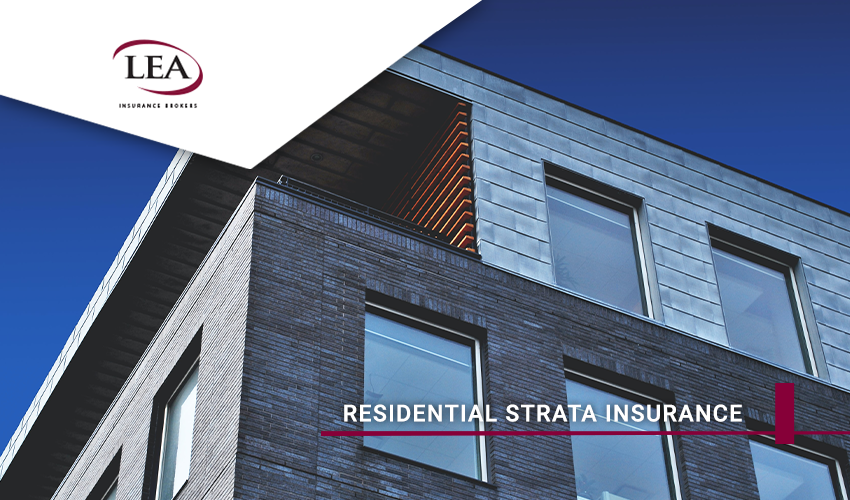
Why do I need more insurance if I already pay body corporate fees?
As the owner of a residential strata property, you might think your strata or body corporate fees cover your share of the premium costs of insurance and that you won’t need to buy extra insurance.
But do you know what residential strata insurance does and doesn’t cover?
Each state and territory in Australia has different laws to deal with such insurance, although it’s compulsory around the country. Laws may apply differently if it’s a two-lot strata comprising two buildings which are physically attached.
What is and isn’t covered
This is what strata insurance or body corporate insurance usually covers:
- The building
- Public liability if someone’s injured on the common property
- Common property such as lifts, swimming pools, car parks, electrical wiring, ceilings, windows, walls, garden equipment, floors and ceilings
- Some fixed parts of your apartment – ducted air conditioning, fire protection systems, for example
Usually, there may be exclusions such as landslip or flood, or for certain property features such as fencing. Strata insurance covers only common or shared property. This may include some fixed parts of your unit, but may not cover everything. Strata insurance likely does not cover your contents and personal items.
Where it gets complicated
As a strata property owner, you’re relying on your owners’ cooperation to adequately insure the property and comply with the law. Strata insurance is usually managed by a strata manager or property manager. Consider asking them how the sum insured was calculated, and don’t forget we’re here to help if it doesn’t add up.
Owners might also question how the premium was arrived at. It depends on:
- The laws of your state or territory
- Stamp duty, GST and other government taxes
- The building’s age, condition, design, materials used and replacement cost
- The building codes
- Any commercial activities that happen on the property including holiday letting
- Agents’ fees and commission
- The value of the common property such as stairwells, car parks, pools, etc.
- The location’s risk profile (for example, cyclone-prone and high bushfire risk areas could be more expensive to insure)
You might think because your building meets current building codes for cyclone-prone areas, it shouldn’t be that expensive to insure. However, those codes aim to protect residents’ lives rather than building damage, therefore they can still suffer extensive property damage during cyclones.
How insurance covers the rest
As well as body corporate or strata insurance, owners whose investment is in a strata complex should also consider landlord insurance and require their tenants to take out tenants insurance.
Landlord insurance can protect you from financial loss, accidental damage and legal liability. It usually covers you for:
- Fixtures including light fittings, carpet, appliances, and window coverings
- Financial loss when your tenants or their guests damage or steal your property from your rental premises
- Unpaid rent (although insurance policies might be restricted on this due to the impact of the COVID-19 pandemic)
- Fire, water and storm damage
- Replacing deadlocks
- If your tenant or their guest(s) are injured or killed on the property and you, as the landlord, were found legally responsible
Your landlord insurance won’t cover your tenants’ possessions. Tenants insurance protects against damage to their possessions from specific risks such as fire or burglary, or against accidental loss or damage. It can also provide cover for accidental damage to fixtures and fittings of the property being rented, or provide legal liability cover due to the actions of the tenant.
As your broker/adviser, we can negotiate on your body corporate’s behalf for the best-fit excess and premium. We can also help find the best-fit landlord insurance for you and when it comes time to claim, act on your behalf.
The advice we are providing to you is General Advice which has been prepared without considering your current objective’s, financial situation or needs.
Therefore, before acting on this advice, you should consider the appropriateness of the advice having regard to your current objective’s, financial situation or needs. You should consider the relevant Product Disclosure Statement (PDS) before making any decision to purchase this product.
